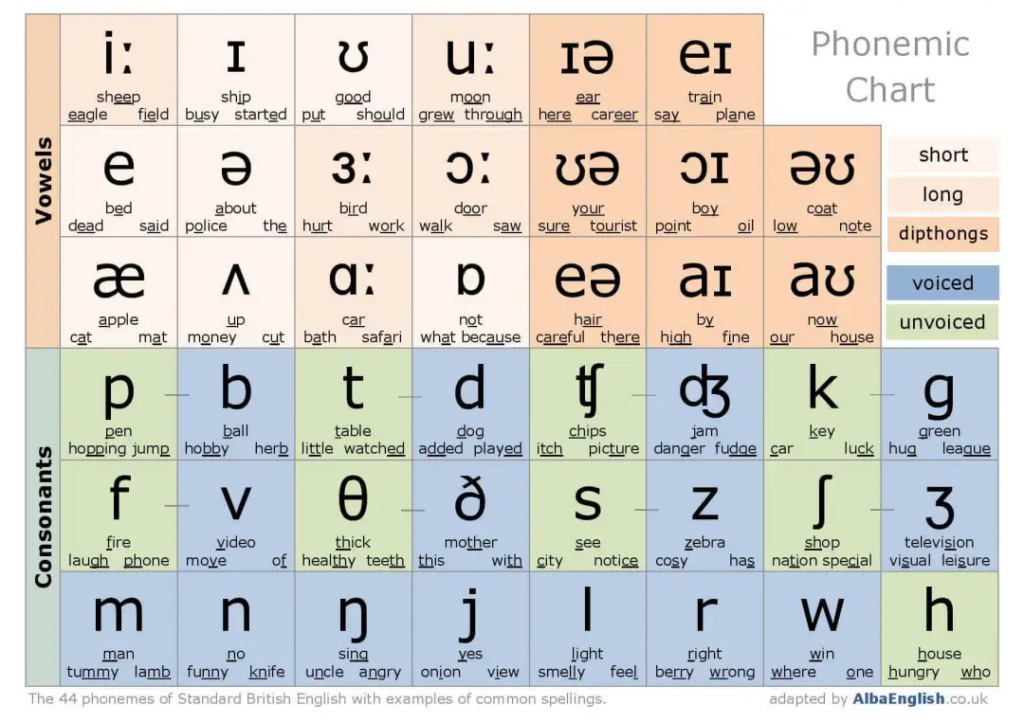English is a tool that opens up the world to us. Whether you want to explore new cultures, access knowledge from around the globe, or communicate with people from different backgrounds, learning English is essential. One important aspect of learning English is phonetics, which is the study of the sounds used in spoken language. By understanding the basic categories of phonetics, and how to physically pronounce them, we can improve our ability to speak and listen to English.
Phonetics is a branch of linguistics that focuses on the study of the sounds used in spoken language. The International Phonetic Alphabet (IPA) is a system of symbols used to represent the sounds of human speech. It is a standardized way of describing how the sounds of language are produced and how they differ from one another.

There are two basic categories of phonetics: Vowel and Consonant sounds. Vowels can be Short or Long (Monophthongs) and can also be combined to create Diphthongs. Consonants are categorized as Stop, Fricative, Affricate, Nasals, and Approximants.
To physically produce these sounds, we use particular areas of our mouth, such as the Alveolar Ridge and Soft Palate. In addition, when discussing Voiced and Unvoiced sounds in phonetics, it is typically in reference to consonants. Voiced consonants are those that involve the vibration of the vocal cords, while unvoiced consonants do not.
To speak or listen to spoken English, it is also important to understand Connected Speech. Connected speech is the way that words in a sentence are pronounced together, rather than as separate units. This can involve various processes such as Catenation, Intrusion, Elision and Assimilation. For example, the Glottal Stop sound (made by blocking the flow of air in the throat) is used in English to replace a T sound in words like “button” or “little”. Flap T is used to replace T and D sounds in some American accents.

Different accents can also affect how we perceive spoken English. Received Pronunciation (RP) is the standard British English accent, but there are many different accents in England, such as the Scouse accent from Liverpool. American accents are also significantly different from British accents. For example, American English is known for its Rhotic accent, which means that the “r” sound is pronounced at the end of words, whereas in RP, the “r” sound is often dropped at the end of words.
So how can we improve our English phonetics? One way is to use learning channels such as Easy English with James or English with Lucy, which are tailored specifically to British English accents. By listening to native speakers and practicing the physical techniques used to produce different sounds, we can develop our ability to speak and understand spoken English.
While phonics is commonly taught in school, phonetics is often overlooked, especially in earlier years. However, it’s never too late to learn something new and useful. By mastering phonetics and improving our pronunciation skills, we can benefit in various ways, such as better communication with native English speakers, improved confidence in public speaking, and even enhanced job prospects. So, whether you’re a non-native English speaker looking to improve your skills or a native speaker looking to refine your pronunciation, learning phonetics and IPA can be a valuable investment in yourself and your future.
